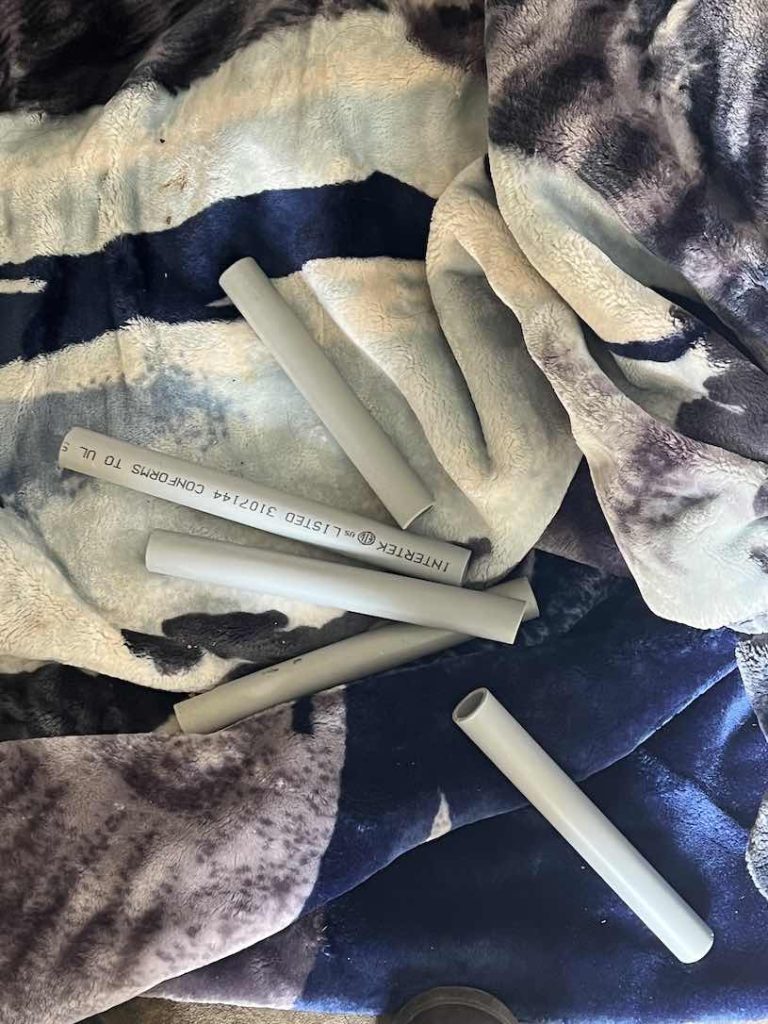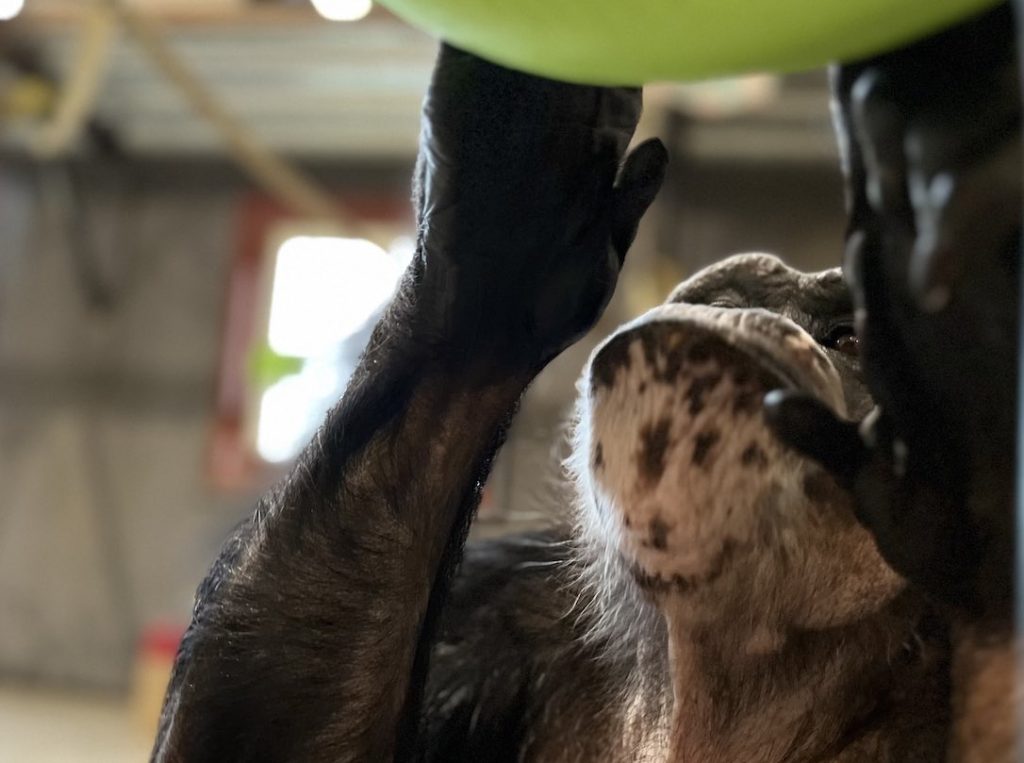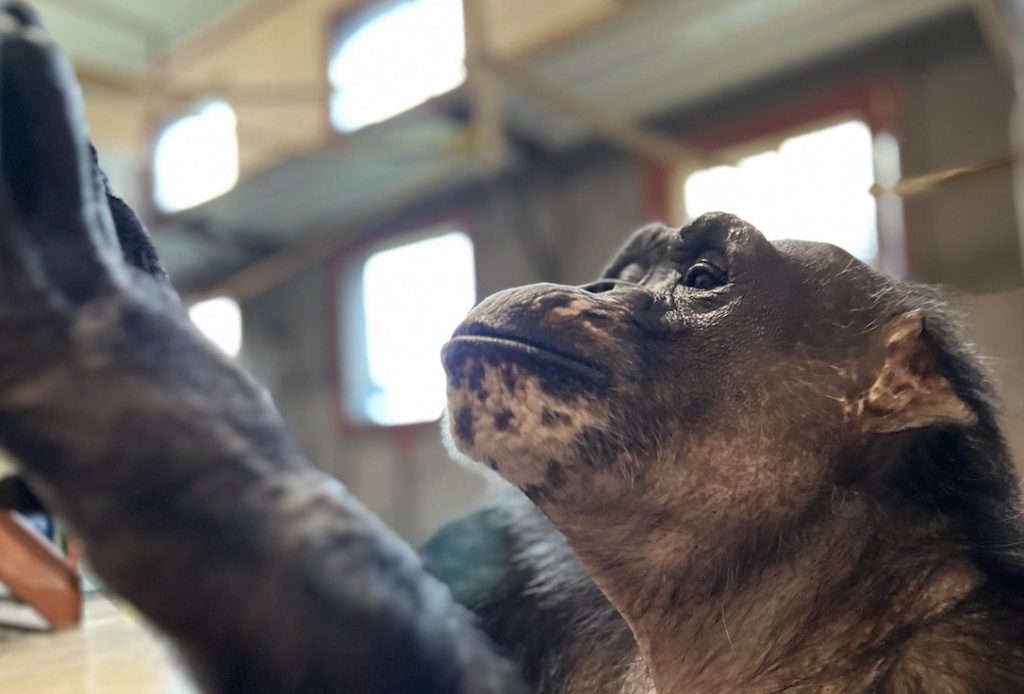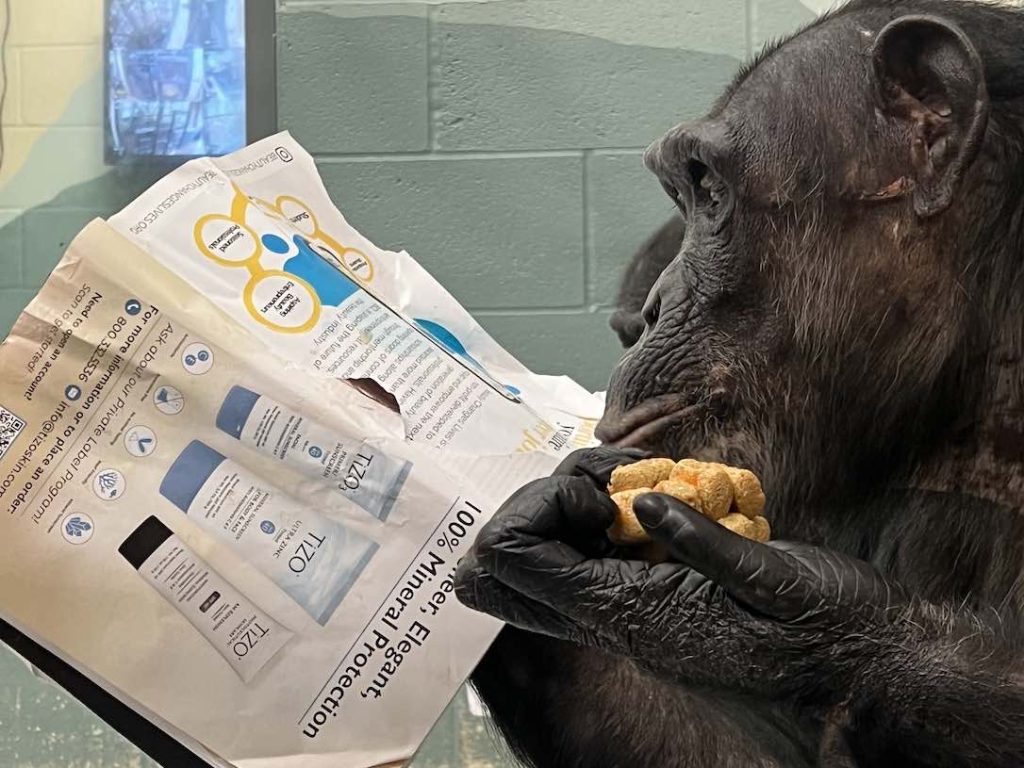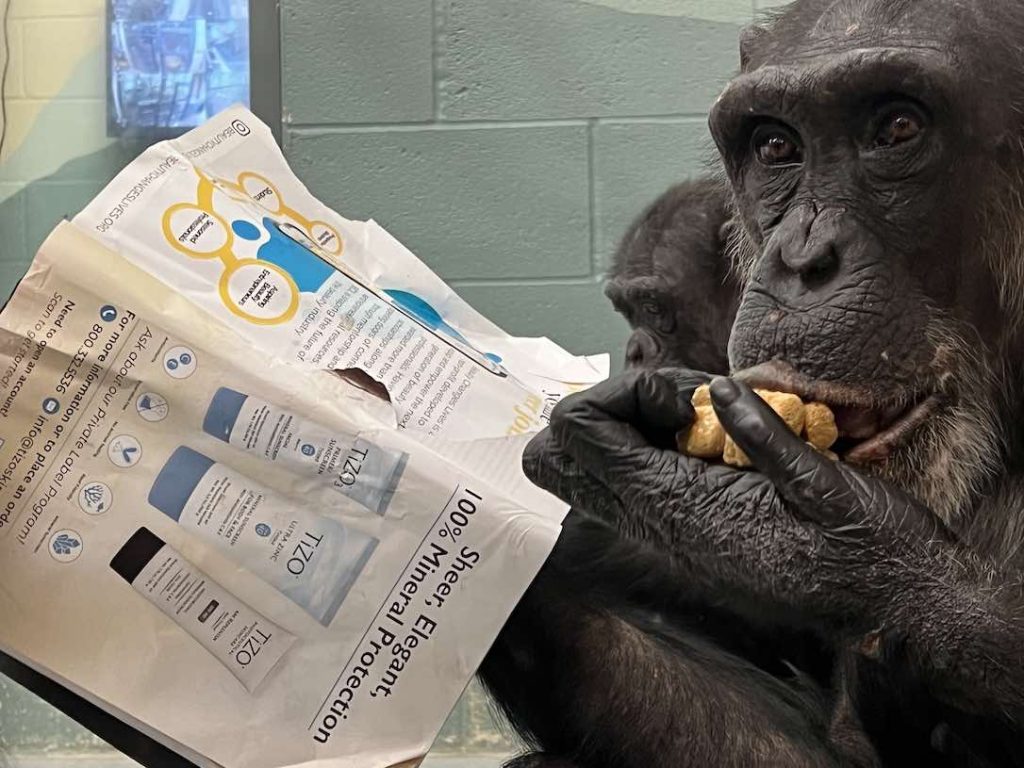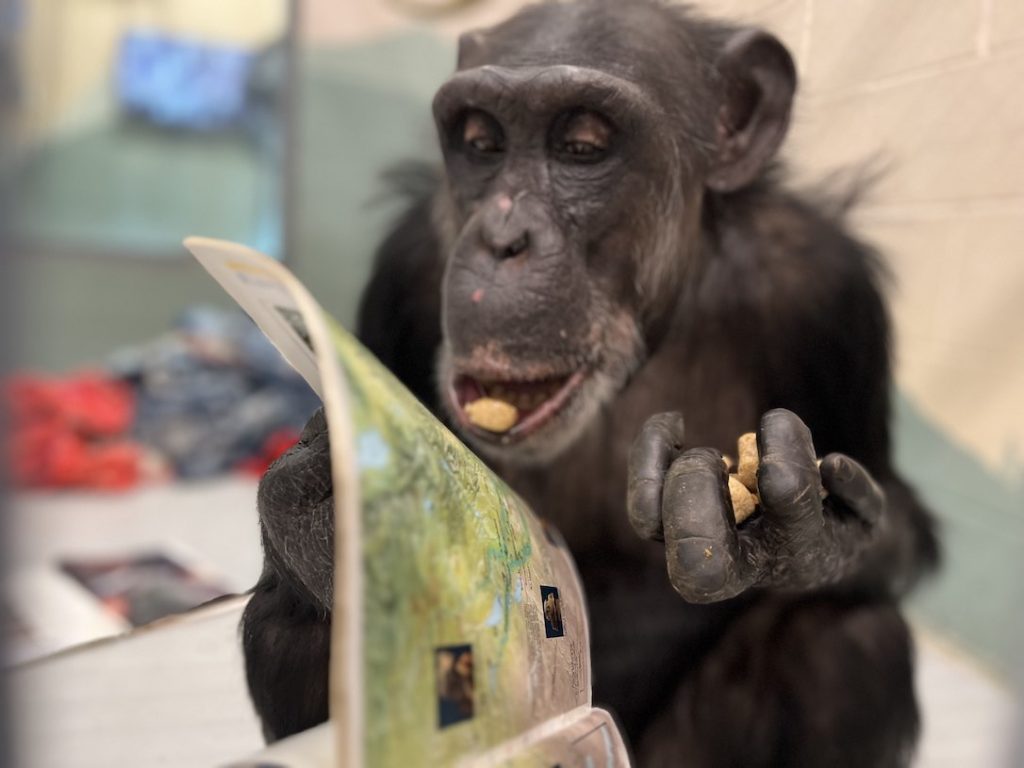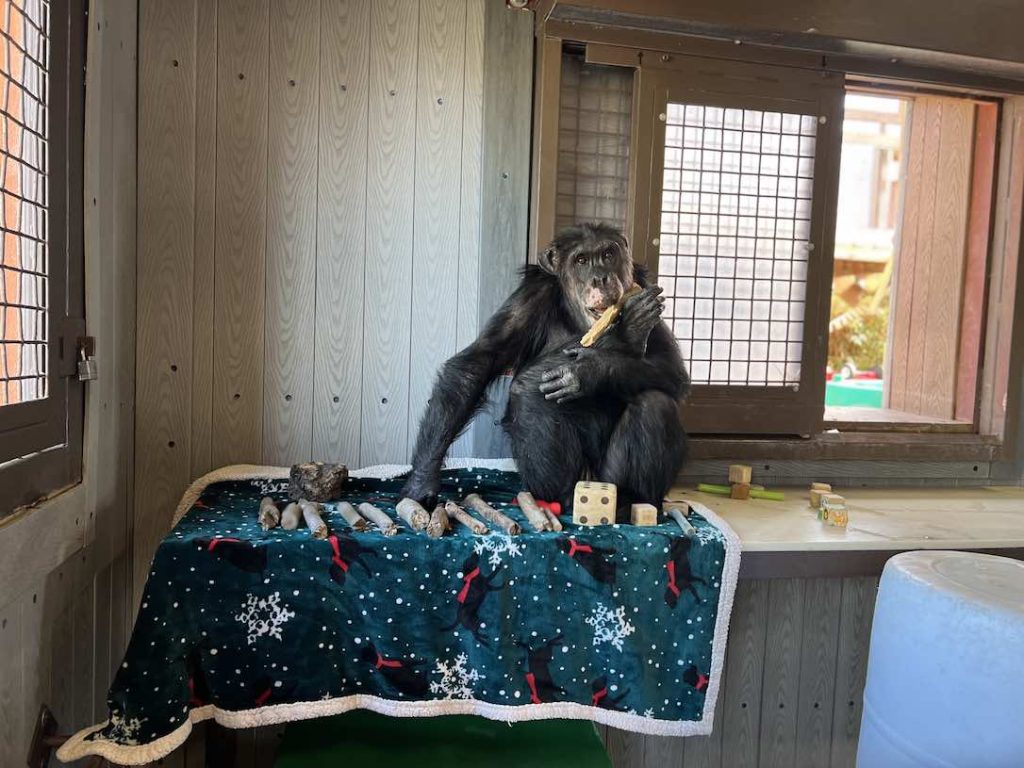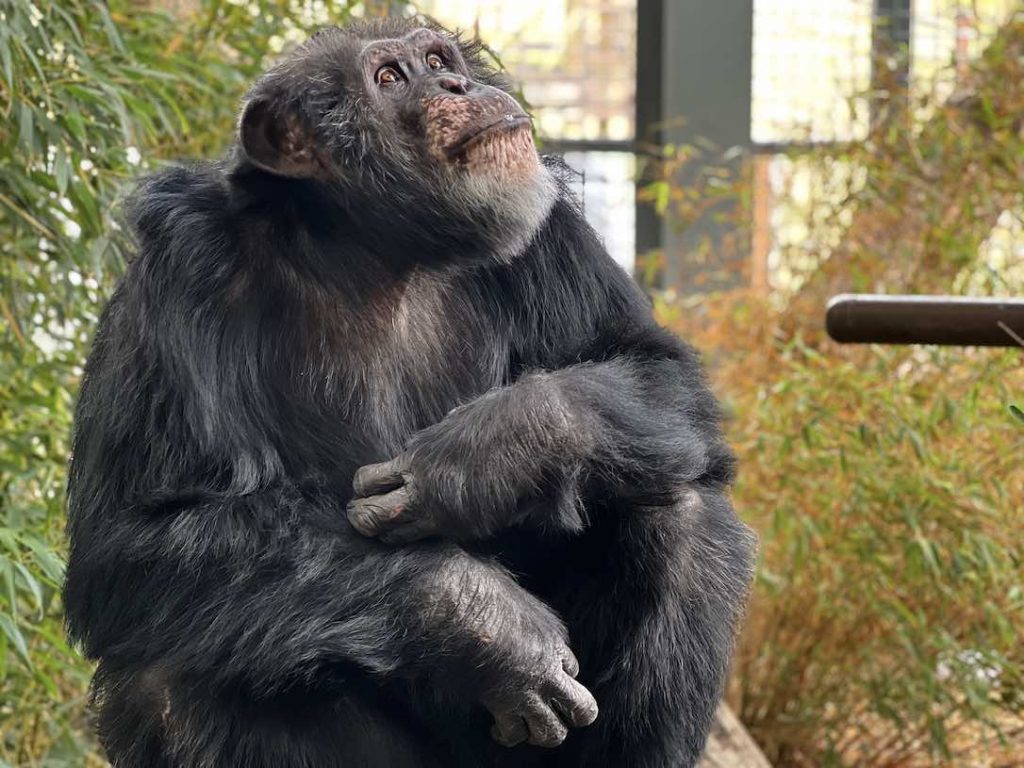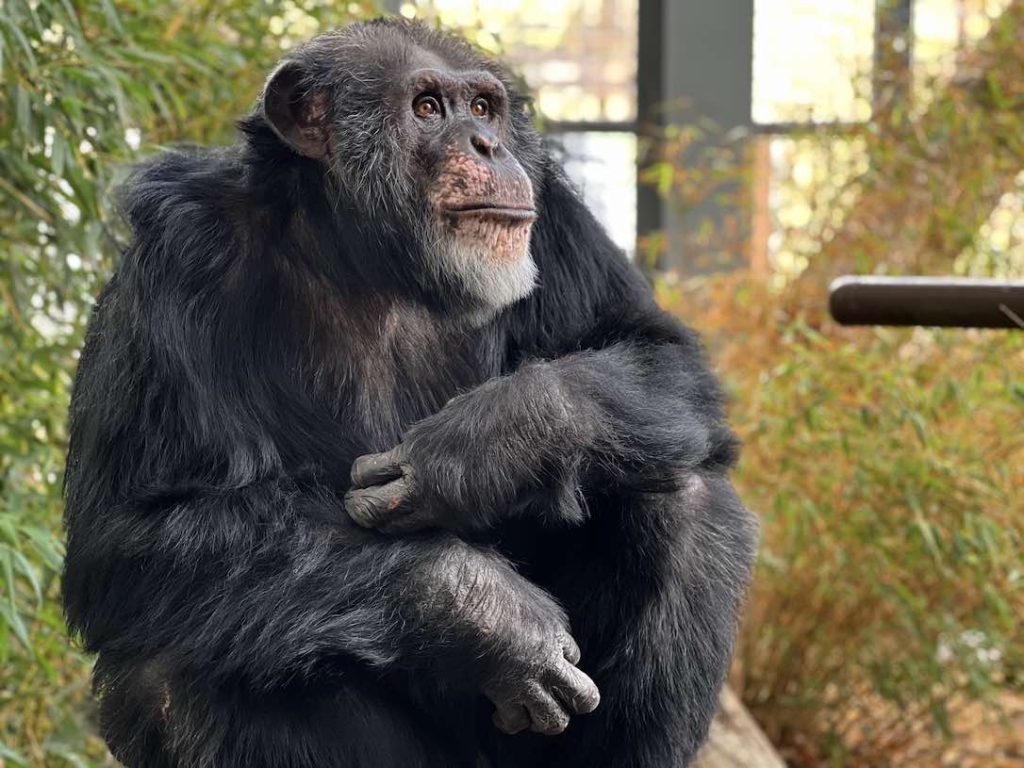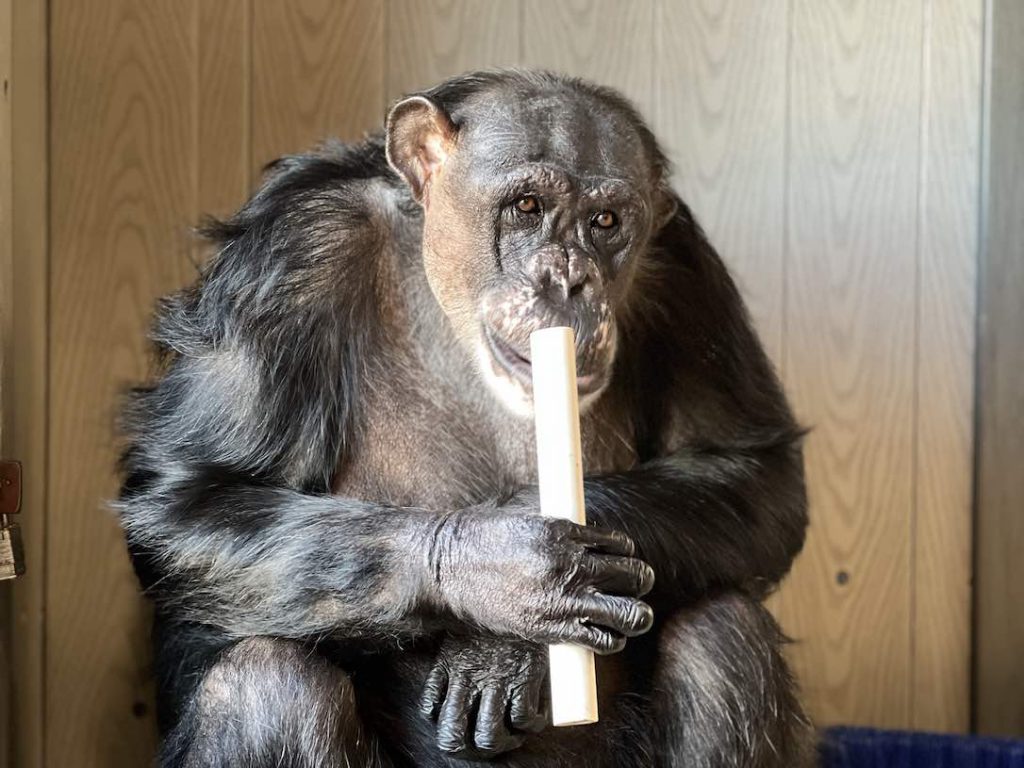(Note: Before reading on, just know, the humans are indeed okay! It’s just a play off of yesterday’s blog title: The Chimps Aren’t Alright)
Before we get into the blog, let’s play a game! Can you guess who was hoarding PVC Tubes from the night before in their nest? The answer will be at the end of the blog!
Today is World Mental Health Day! World Mental Health Day was first celebrated in 1992 as a way to raise awareness, education, and to try to help break the stigma which surrounds mental health. With it being today, I thought I would talk about something that is gaining more traction in the world of chimpanzee caregiving: Compassion Fatigue.
Compassion fatigue affects those who work in a occupation relating to caregiving; i.e. doctors, nurses, EMT, psychologists, physical therapists, veterinarians, and yes, caregivers of both human and non-human animals. In 2010, Dr. Patricia Potter described compassion fatigue as the “traumatization of helpers through their efforts at helping others” in her study of compassion fatigue in oncology nurses. Compassion fatigue consists of two things: burn out and secondary traumatic stress. Caregivers who are burnt out may experience unhappiness, disconnectedness, insensitivity to their work environment, exhaustion, and feelings of being overwhelmed, bogged down, and being out of touch of who they want to be. Secondary traumatic stress is when caregivers simply cannot get those whom they help out of their thoughts. It can cause sleeplessness, forgetfulness, and the inability to separate private and professional life.
Dr. Potter’s study was then replicated by Dr. Mary Lee Jensvold of the Fauna Foundation and Central Washington University to specifically look at compassion fatigue in chimpanzee caregivers. To the surprise of almost no one, chimpanzee caregivers experience compassion fatigue. I will plead the 5th on saying if any of my fellow caregivers here (both staff and volunteers) have or have not experienced compassion fatigue at any point, but I will talk about my own experiences with it in an attempt to try to break the stigma around openly talking about mental health.
I have showcased some of the symptoms of compassion fatigue. For me, it’s very hard to separate my personal life from my caregiving one. The chimpanzees are always on my mind, even on my weekends, holidays, and vacation. I sometimes stay awake at night, particularly if the chimpanzees have been worked up and there’s a lot of fights or other emergencies. I also have this constant, nagging feeling what I am doing is not good enough for them. Not to say what I do is terrible, just that feeling like it’s not enough for them. Even just trying to hang out with the chimpanzees can take its toll when you have not just one or two trying to vie for your attention, but several. It’s just one of those moments when you wish you could clone yourself several times over, but can’t, so you’re going to leave somebody disappointed. A terrible feeling for a caregiver.
Though I know I personally will not be able to address every single one of these things that contribute to my own fatigue, I can address most of them.
Recent articles detailing compassion fatigue do have many tips in trying to combat it. This next part is mostly for other caregivers around the world, but for all the well wishers still reading, maybe you can use it as well. My first humble suggestion is to read more about compassion fatigue, what it is and what are the symptoms of it. The two articles linked in this posting are great starts. Second suggestion is to look after yourself. It is 100% okay to take those days off you’ve been wanting to take. Go see family and friends. Go for a hike. Go travel to places you have never been to but always wanted to go. Do whatever it is that makes you happy and brings peace into your life. Don’t think about work. Your time off is just that: YOUR time off. It’s incredibly difficult to not think about work when you aren’t there, I know. But you have to in order to continue on in this field. Turn off you work notifications. Hide anything that is work related in your home. And most of all, trust your fellow caregivers. They are well trained, know their job, are just as capable as you, and can handle anything while you’re away. (I don’t mean to imply I don’t trust the other caregivers here. I do 100%. But I know that is a feeling associated with compassion fatigue.)
This job is a truly unique life experience. It is not a mundane, putting checks in boxes type of career. You constantly have to be on your toes, think outside the box, and be prepared for things you probably haven’t thought of. This job requires a lot of stamina, passion, and hard work and decision making. In order to do that, you have to take care of yourself and recharge. I once asked an activist I know how she is able to continue to carry so much passion for what she believes in and continue to fight for it. She told me, “you cannot pour from an empty cup. Make sure you’re taking care of yourself mentally and physically so that cup can always have something to pour.” So those are the words I will leave you with.
Now onto another plugin. Jamieween is quickly approaching. Be sure to continue to check out our Amazon Wish List for items for one of the biggest celebrations we celebrate! In fact, today and tomorrow is Amazon Prime Day! So some things may be at a reduced cost!
And it wouldn’t be a blog without some photos, right!?
Negra fishing peanut butter out from between Frisbees
Honey B perusing through some magazines while eating her lunchtime chow biscuits
Burrito and his stick collection he amassed from the expanded Young’s Hill laid out for him by caregivers
And the nicest guy around: Teeny Tiny Terry!
And the answer to who was hoarding the PVC tubes in their nest….
It was Negra!!!
